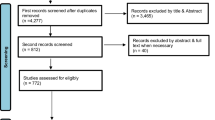Abstract
Some may say the rise of parochial, sectarian populism has indicated a failure of civic education. On the other hand, it might be said to demonstrate the increasing power of some alternative forms of education. This paper hopes to shed light on how ordinary people learn in ways and through means that are at odds with the experiences of scholars and elites. To do so it explores the intersections of education, technology, and social mobility, to highlight how people learn social class, and learn in classed ways outside schools. In contrast to the dream of information liberty, this article considers how online media is marked by private control of information, often retracing and broadening gaps between social classes. The article provides a theoretical understanding of the relationship between technology and education and the linkages of class and media consumption. It then integrates these topics by exploring how online learning through segmented social media operates to reproduce class and facilitate and mobilize sectarianism. This paper concludes with a recommendation for more focus on the study of class by philosophers interested in education for democracy and social justice.
Similar content being viewed by others
Notes
Fukuyama, F. (1992). The end of history and the last man. New York: Simon & Schuster.
Banks, J. A. (2017). Failed citizenship and transformative civic education. Educational Researcher, 46(7), 366–377.
Burbules, N. C., & Callister, T. A. (1999). The risky promises and promising risks of new information technologies for education. Bulletin of Science, Technology & Society, 19(2).
Burbules, N. C. (2000). Universities in transition: The promise and the challenge of new technologies. Teachers College Record, 102, 273–295. See also Warnick, B., & Burbules, N. C. (2007). Media comparison studies: Problems and possibilities. Teachers College Record, 109, 2483–2510.
Winston, B. (1998). Media, technology and society: A history from the telegraph to the Internet. London: Routledge.
I am indebted in this section to a very educational extended dialogue with David Turner of the University of New South Wales, which took place from mid to late-2017, after the Comparative Education Society of Hong Kong Annual Conference.
Burbules, Universities in transition.
For example, see Sidorkin, A. (2009). Labor of learning: Market and the next generation of educational reform. London: Sense.
For more, see Bligh, D. A. (2000). What’s the use of lectures? San Francisco: Jossey-Bass.
Lauwerys, J. A. (1935). The film in the school. London: Christopher’s.
See Givens, N. (2000). Curriculum materials as a vehicle for innovation: A case study of the Nuffield design and technology project. Research in science and technological education, 18, 71–83.
Legrand, L. (1993). Célestin Freinet. Prospects: The Quarterly Review of Comparative Education, XXIII ½, 303–418.
Jackson, L. (2019). Questioning allegiance: Resituating civic education. London: Routledge.
Anderson, B. (1983). Imagined communities. New York: Verso.
Hall, S. (1973). Encoding/decoding. In Culture, media, language: Working papers in cultural studies. London: Hutchinson.
Cortes, C. E. (2005). How the media teach. In G. Schwarz & P. U. Brown (Eds.), Media literacy: Transforming curriculum and teaching (pp. 55–73). Malden: Blackwell. See also Jackson, L. (2014). Muslims and Islam in US education: Reconsidering multiculturalism. New York: Routledge.
Jackson, Questioning allegiance; D’Olimpio, L. (2018). Media and moral education: A philosophy of critical engagement. London: Routledge.
Hardt, M., & Negri, A. (2004). Multitude: War and democracy in the age of empire. New York: Penguin.
Boler, M. (2007). The Daily Show and political activism. Counterpunch, February 20.
Ali, C. (2017). Media localism: The policies of place. Champaign: University of Illinois Press.
Hersh, E. (2017). Hacking the electorate: How campaigns perceive voters. Cambridge: Cambridge University Press.
Jackson, L. (2018). ‘The best education ever’: Trumpism, Brexit, and new social learning. Educational Philosophy and Theory, 50(5), 441–443.
Jackson, L. (2018). Null and nuller? Laughing about injustice, from Jon Stewart to John Oliver. In N. Levinson (Ed.), Philosophy of Eeducation 2016 (pp. 182–193). Urbana: Philosophy of Education Society; McCrummen, S. (2016). Finally, someone who thinks like me. Washington Post, Oct. 1.
For example, Applebaum, B. (2006). In the name of morality: Moral responsibility, whiteness and social justice education. Journal of Moral Education, 34, 277–290; Hytten K., & Warren, J. (2003). Engaging whiteness: How racial power gets reified in education. International Journal of Qualitative Studies in Education, 16, 65–72; McCarthy, C. (2003). After the canon: Knowledge and ideological representation in the multicultural discourse on curriculum reform. In C. McCarthy & W. Crichlow (Eds.), Race, identity and representation in education (pp. 289–305). New York, NY: Routledge.
Jackson, L. (2019). Becoming classy: In search of class theory in philosophy of education. In M. Laverty (Ed.), Philosophy of education 2018. Urbana: Philosophy of Education Society.
Laird, S. (1997). Introduction. In Laird (Ed.), Philosophy of education 1997. Urbana: Philosophy of Education Society.
Taylor, C. (1992). Multiculturalism: The politics of recognition. Princeton: Princeton University Press; Narayan, U. (2004). The project of feminist epistemology: Perspectives from a nonwestern feminist. In S. G. Harding (Ed.), The feminist standpoint reader: Intellectual and political controversies. New York: Routledge.
Jackson, Becoming classy.
McCrummen, Finally, someone who thinks like me.
Jackson, Becoming classy.
Acknowledgements
Funding was provided by the HKU Overseas Fellowship Award, University Research Committee, University of Hong Kong.
Author information
Authors and Affiliations
Corresponding author
Additional information
Publisher's Note
Springer Nature remains neutral with regard to jurisdictional claims in published maps and institutional affiliations.
Rights and permissions
About this article
Cite this article
Jackson, L. Mediating Class: The Role of Education and Competing Technologies in Social Mobilization. Stud Philos Educ 38, 619–628 (2019). https://doi.org/10.1007/s11217-019-09656-1
Published:
Issue Date:
DOI: https://doi.org/10.1007/s11217-019-09656-1




